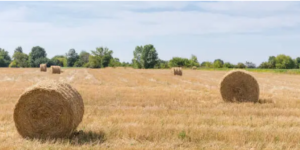Choosing the right twine is crucial to getting the best performance from your baling machine. This article will explore some of the basics to help you make an informed decision on a colored baler twine.
 Designed for trouble-free hay and straw baling in a bright PINK, BLUE or ORANGE colour. Also available in a longer length for maximizing productivity in your balers.
Designed for trouble-free hay and straw baling in a bright PINK, BLUE or ORANGE colour. Also available in a longer length for maximizing productivity in your balers.
Colored baler twine is a great way to identify hay bales
If you’re looking for a way to identify your hay bales, colored baler twine is the perfect solution. It’s made of long-lasting strands and is UV-protected to prevent premature degradation. It also offers high yields compared to other types of twine. It’s available from a variety of dealers, and you can even buy it online.
Besides marking hay bales, you can use colored twine to make creative projects. For example, you can repurpose it to make a wall hanging or a rustic wreath. This material is also a great choice for outdoor applications, as it’s durable and withstands the elements.
In addition to choosing the right twine, you should also be sure that you have the correct baler. A round spool of twine has a set size, and the box that it comes in should be the same size as the chamber in your baler. It ensures that the twine will fit well and perform its job well.
It is made of long-lasting strands.
When it comes to baler twine, you want the strands to last. These strands need to be long enough for the baler to grab them, and they also need to be strong. That is why it’s important to look at the raw materials used in your baler twine.
Another factor to consider is the size of your baler. Different sizes require different twine weights. For example, round balers need heavier twine than square ones. Coastal offers a wide selection of colours, sizes and weights of baler twine to fit all your needs.
Colour-coded twine segments make choosing the right baler twine easier than ever. Tama’s orange segment twine – branded as LSB Power – is recommended for all types of crops and balers. This twine is rated at a high level and has undergone in-field testing with OEM-branded balers around the world.
It is UV-protected
Whether you use it to mend fences, repair tractor parts or tie hay bales, twine is an essential tool on the farm. But before you buy your next bundle, it is important to know some of the basics about twine weights and colours. The right twine can help you get the most out of your baling machine and can even save you money on freight costs.
The most important thing to consider when choosing twine for your baling machine is its strength and durability. Twine is made from either sisal or poly, and both are designed for different applications. Sisal twine is natural and biodegradable, but it lacks the tensile strength of poly. It is why new twines have been engineered to improve the quality of knotting and achieve greater longevity with a lower cost per bale.
It is biodegradable
Twine is a vital tool on any farm, and it can be used for a variety of purposes. It can mend fences, reattach tractor parts, and hold down hay bales. But its primary use is for tying round bales of hay or other materials. It is available in many colours, which can help identify the bales in fields or paddocks. Some varieties even come in different strength levels to match your needs.
The new generation of twines launched two years ago have better knotting performance and longer spools, making them more economical to use per bale. They also use a more robust and environmentally friendly material. They are produced by a process called extrusion, which melts the raw materials and flows them through a flat head to form a sheet of polypropylene.
This new colored baler twine is easy to use and provides a much better knot formation than older varieties. They are also colour-coded, so you can easily match the twine to your baling conditions. The blue segment twine is suitable for light cropping and dry conditions, while orange and red are ideal for baling heavier crops in more demanding conditions.